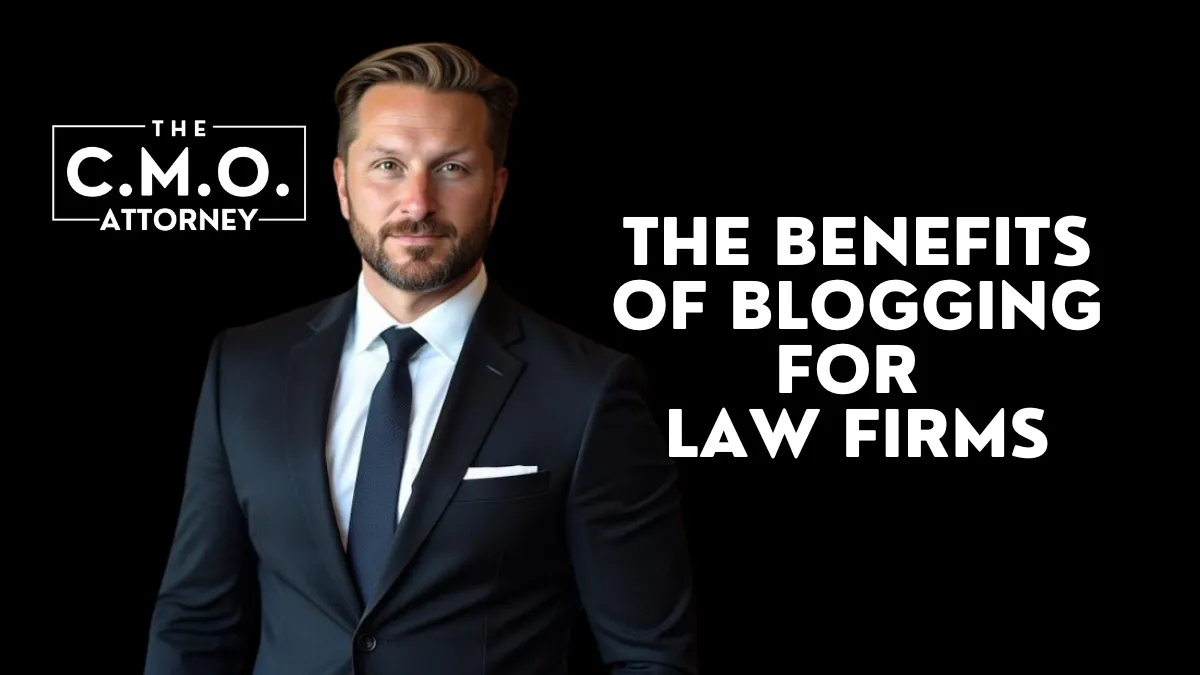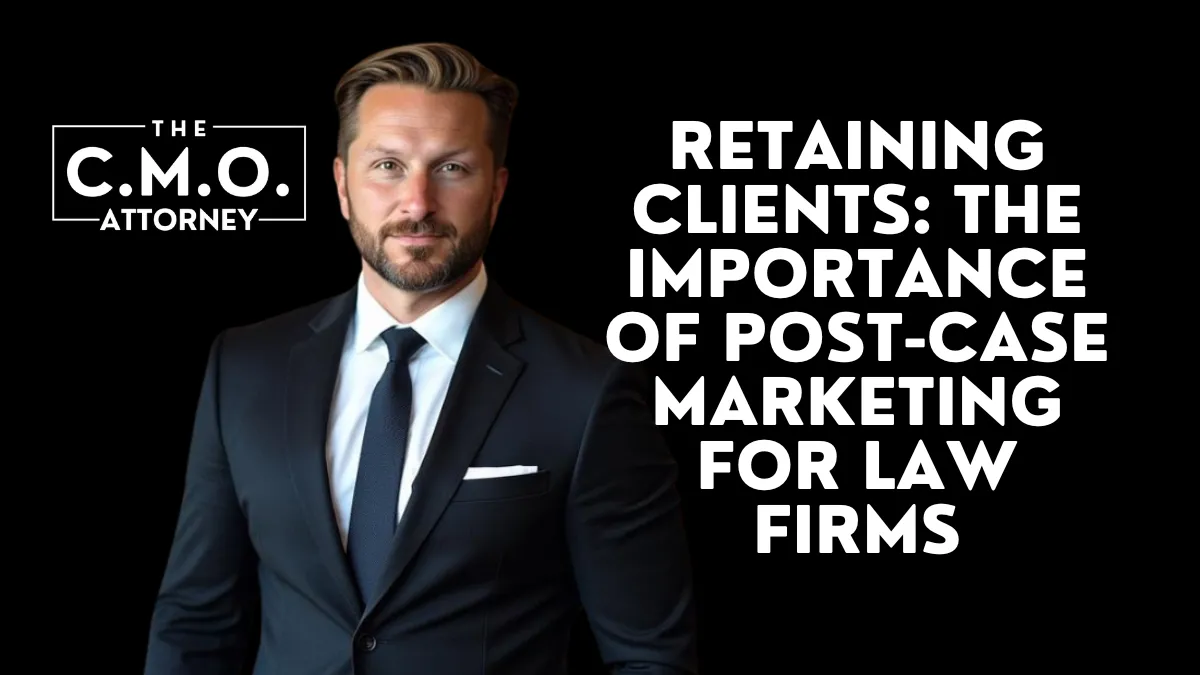 In today’s digital-first world, reputation management for law firms is more critical than ever. At The CMO Attorney, we recognize that your firm’s reputation is your most valuable asset. Negative online reviews, misleading articles, or false information can damage years of hard work and client trust. Proactively managing your online image is essential for both short-term credibility and long-term success.
In today’s digital-first world, reputation management for law firms is more critical than ever. At The CMO Attorney, we recognize that your firm’s reputation is your most valuable asset. Negative online reviews, misleading articles, or false information can damage years of hard work and client trust. Proactively managing your online image is essential for both short-term credibility and long-term success.
Why Reputation Management for Law Firms Is Crucial to Success
When prospective clients search for legal services, the first impression they often receive is shaped by what they see online—whether it’s Google reviews, social media mentions, or legal directories. A strong, positive online reputation builds client confidence, increases conversions, and establishes long-term loyalty.
However, a single negative review or inaccurate article can have a significant impact. Negative SEO or malicious campaigns can tarnish your firm’s online image, potentially steering clients away from your services. That’s why reputation management for law firms is indispensable.
Key Elements of Effective Reputation Management for Law Firms
1. Audit and Monitor Your Online Presence
Effective reputation management begins with a thorough audit of how your law firm appears online. This includes:
-
Google search results (especially the first few pages)
-
Reviews on platforms like Avvo, Yelp, and Google My Business
-
Social media mentions across platforms such as LinkedIn, Facebook, and Twitter
-
Legal directories like Justia, Martindale-Hubbell, and FindLaw
-
Blog posts, press releases, and legal forums
Using reputation monitoring tools such as Google Alerts, Birdeye, and ReviewTrackers, we constantly track mentions of your firm and ensure we can respond swiftly to any negative content.
2. Build a Stream of Positive Client Reviews
Reviews are a cornerstone of reputation management for law firms. Over 90% of legal clients read reviews before making hiring decisions. A few negative reviews are inevitable, but a lack of positive reviews is much more detrimental.
We assist in creating review generation campaigns via email, SMS, and satisfaction surveys, encouraging satisfied clients to leave positive reviews on important platforms. Additionally, we ensure that any negative feedback is responded to professionally and within legal boundaries, showcasing your firm’s commitment to improvement.
3. Control the Narrative with High-Authority Content
A proactive strategy in reputation management for law firms involves creating and distributing high-quality, authoritative content that positions your firm as a leader in your practice area. Content such as legal blogs, case studies, attorney spotlights, and firm news help control the online narrative by ensuring that positive content appears at the top of search engine results.
Publishing consistent, well-crafted content not only improves your ranking; it shapes how your firm is perceived online.
4. Optimize and Maintain Social Media Presence
Social media is a powerful tool for reputation management. Neglected or poorly managed social media profiles can make your firm appear unprofessional or inactive. Conversely, a well-managed social presence reinforces your credibility.
At The CMO Attorney, we create tailored content calendars for your LinkedIn, Facebook, and Twitter pages, ensuring consistent engagement and a strong digital presence. This interaction with clients and prospects fosters trust, a critical element of reputation management for law firms.
5. Legal Directories and Professional Listings Optimization
Legal directories are important resources for both clients and other legal professionals. They serve as platforms where clients look for reputable attorneys, and an optimized directory profile can have a significant impact on your firm’s visibility.
We ensure your law firm’s information (Name, Address, Phone Number – NAP) is accurate and consistent across all directories. Profiles should include client reviews, attorney bios, and details of your firm’s achievements, all of which build trust and influence your reputation in the legal community.
6. Crisis Management and Reputation Recovery
When a crisis strikes—whether it’s a lawsuit, scandal, or online smear campaign—swift and strategic response is crucial. At The CMO Attorney, we have developed a reputation recovery protocol to help law firms manage such situations:
-
Digital PR campaigns to highlight positive aspects of your firm
-
Search engine suppression of negative content through targeted content strategies
-
Review management to contest fake or slanderous reviews
-
Transparency-based responses that demonstrate accountability and integrity
Effective reputation management for law firms is not about covering up or hiding issues—it’s about addressing them head-on and restoring public trust.
 The Role of SEO in Reputation Management for Law Firms
The Role of SEO in Reputation Management for Law Firms
SEO plays a critical role in reputation management for law firms. It’s not just about ranking for specific keywords—it’s about ensuring your firm’s reputation is accurately represented in search engine results pages (SERPs). When negative or misleading content ranks highly, it can damage your firm’s credibility.
At The CMO Attorney, we employ advanced SEO strategies to push down harmful content and elevate positive, authoritative content. Here’s how SEO integrates with reputation management:
1. Content Optimization for Positive Brand Messaging
High-quality, keyword-optimized content is vital in improving your online image. By publishing consistent, valuable content such as blog posts, case studies, and client testimonials, your law firm can dominate search results with positive, relevant information. This content doesn’t just improve your ranking; it shapes how your firm is perceived online.
2. Local SEO to Strengthen Reputation
For law firms, local SEO is key. Most clients search for legal services nearby, so ensuring your firm’s visibility in local search results is vital. We optimize your Google My Business profile and encourage satisfied clients to leave reviews. Additionally, creating location-based content boosts your visibility and reputation within your local community.
3. Negative SEO Mitigation
Negative SEO is an unfortunate reality for many firms. It involves malicious actors attempting to damage your reputation through harmful links or misleading content. We help mitigate this threat by suppressing negative articles and reviews with high-quality, optimized content, ensuring that positive mentions of your firm dominate search results.
Benefits of Partnering With The CMO Attorney
At The CMO Attorney, we specialize in reputation management for law firms. Our experience in legal marketing ensures that we understand the intricacies of the legal industry and can effectively protect your firm’s online image.
Why Choose Us?
-
Expertise in the legal industry and its ethical standards
-
24/7 online monitoring to respond to potential issues immediately
-
Tailored reputation management strategies for solo practitioners and large firms alike
-
Proven results in increasing visibility and enhancing online reputation
-
Crisis management capabilities to handle unexpected challenges
Get Ahead of the Competition With Proactive Reputation Management
In the highly competitive world of legal services, reputation is everything. By implementing a proactive strategy for reputation management for law firms, you not only safeguard your firm’s image but also create an environment where clients feel confident and comfortable reaching out to you.
Partner with The CMO Attorney to ensure your firm’s reputation is professionally managed, elevated, and protected.
Ready to Safeguard Your Online Reputation?
Your law firm’s reputation is priceless. Don’t wait for a crisis to arise—take control now.
Sign up for a free consultation with The CMO Attorney today and let us help you craft a reputation management strategy tailored specifically for your firm.
Sources
-
BrightLocal – Local Consumer Review Survey 2023
A comprehensive annual study revealing how consumers use online reviews to evaluate local businesses.
https://www.brightlocal.com/research/local-consumer-review-survey -
Clio – Legal Trends Report
Insightful data on client behavior, technology adoption, and marketing strategies in the legal industry.
https://www.clio.com/resources/legal-trends -
Reputation.com – Law Firm Reputation Management Guide
A practical guide on how law firms can take control of their online image through reputation platforms.
https://www.reputation.com/resources/guides/law-firm-reputation-management



 In today’s digital-first world, webinars for law firms have become a powerful tool to educate potential clients, demonstrate authority, and build trust. At
In today’s digital-first world, webinars for law firms have become a powerful tool to educate potential clients, demonstrate authority, and build trust. At  Repurposing Webinar Content for Ongoing Marketing Impact
Repurposing Webinar Content for Ongoing Marketing Impact
 Law Firm Blogging | The CMO Attorney
Law Firm Blogging | The CMO Attorney Engage Clients and Build Stronger Relationships
Engage Clients and Build Stronger Relationships Boost Local SEO and Attract Nearby Clients
Boost Local SEO and Attract Nearby Clients
 High-Value Legal SEO Keywords | The CMO Attorney
High-Value Legal SEO Keywords | The CMO Attorney Keyword Research Tools to Discover High-Value Legal Keywords
Keyword Research Tools to Discover High-Value Legal Keywords Content Distribution and Promotion
Content Distribution and Promotion
 Post-Case Marketing for Law Firms | The CMO Attorney
Post-Case Marketing for Law Firms | The CMO Attorney Building Client Trust Through Follow-Up Communication
Building Client Trust Through Follow-Up Communication Reactivating Dormant Clients with Strategic Outreach
Reactivating Dormant Clients with Strategic Outreach